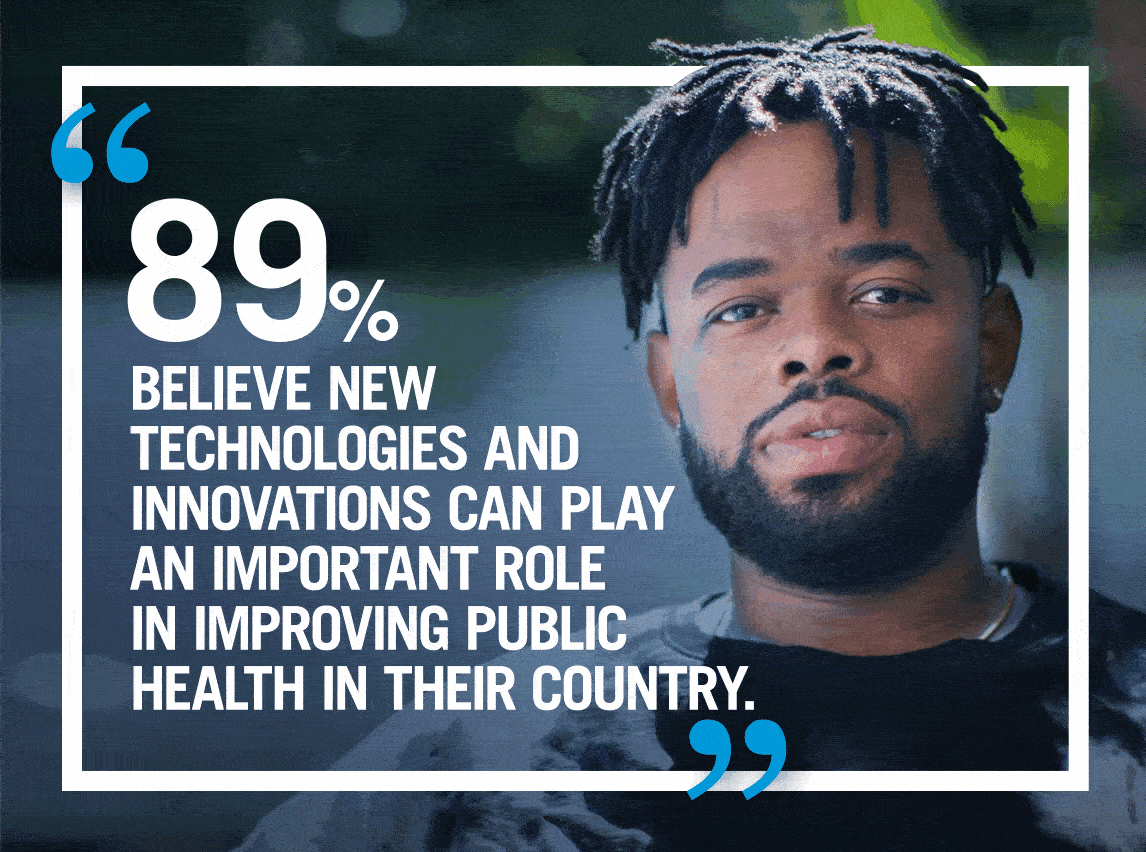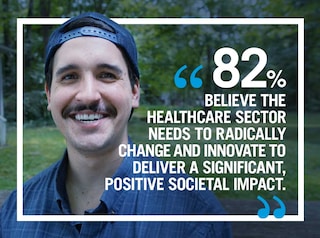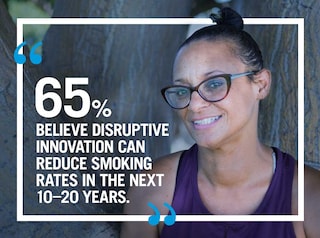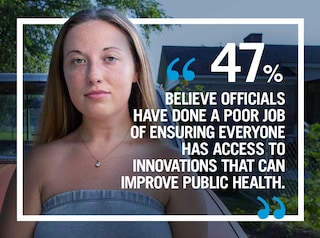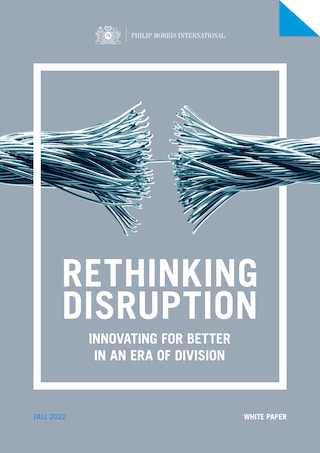Advances in science and technology can address the world’s most pressing public health issues, according to PMI’s latest international survey.
The findings indicate the public’s expectation that disruptive innovation can help solve a range of global challenges in the next 10 to 20 years—from ensuring affordable healthcare to reducing smoking rates.
Moreover, respondents believe that the required innovations will be achieved sooner if governments and businesses work together.
Conducted by international research firm Povaddo, the survey of 17,207 general population adults from 14 countries—plus 281 business elites and 201 global policy elites—revealed:
- 89 percent believe new technologies and innovations can play an important role in improving public health in their country.
- 82 percent believe the healthcare sector needs to radically change and/or innovate to deliver a significant, positive societal impact.
Embracing innovation to reduce smoking rates
Today, smoke-free products exist for adults who would otherwise continue smoking. These innovations could help accelerate the decline of cigarettes.
In countries where adult smokers have access to these smoke-free alternatives, real change is already happening.
At PMI, we are doing our part, transforming our business to replace cigarettes with smoke-free products as rapidly as possible.
And respondents in our survey agree that innovation can play a vital role in helping to deliver a smoke-free future:
- 65 percent believe disruptive innovation can reduce smoking rates in the next 10–20 years.
- 64 percent believe new technologies and innovations can play an important role in helping replace cigarettes with less harmful alternatives for adult smokers.
More action required from governments
Ending the sale of cigarettes—the most harmful form of nicotine consumption—requires modern and pragmatic regulations that ensure all adult smokers who would otherwise continue to smoke can access and afford better alternatives.
That’s why the coordinated and collective action of all key parties—from policymakers to the tobacco industry itself—is vital.
And this is something the public also demands, with our survey showing:
- 41 percent of respondents believe their government and public health authorities have done a poor job of embracing new technologies and innovations to improve public health.
- 47 percent believe their government and public health authorities have done a poor job of ensuring everyone in their country has access to the latest innovations and technologies that can improve public health.
We also posed these questions to people with a potentially deeper familiarity with the issue: Policy elites (individuals who shape, influence, or analyze public policy), and business elites (individuals at the director or executive level within companies with over 10,000 employees).
These respondents are even less satisfied with governmental responses to innovations in public health:
- 57 percent of policy elites and 49 percent of business elites believe government and public health authorities in their country have done a poor job of embracing new technologies and innovations as a way to improve public health.
- 70 percent of policy elites and 58 percent of business elites believe their government and public health authorities have done a poor job of ensuring access to the latest innovations and technologies that can improve public health.
Making smoke-free alternatives accessible and affordable to all
PMI believes that delivering disruptive change quickly and equitably requires fresh thinking and concerted action, especially on the part of regulators and policymakers and the survey findings show that others think the same.
At present, progress is being hampered by a failure to appropriately regulate novel products in a timely and productive manner.
To an extent, this is due to governments’ lack of relevant expertise and up-to-date research—leaving beneficial innovations inaccessible to the people who need them most.
However, the reality is that regulations often impede access to better alternatives; in far too many countries, combustible cigarettes remain the only tobacco products available to consumers.
This lack of access disproportionately affects those with lower incomes where the cost of new technologies can be an additional barrier to entry.
Businesses leading the way in innovation
Less than half our global sample (45 percent) consider the government a driver of positive innovation. In contrast, 68 percent—along with 85 percent of policy elites and 77 percent of business elites—believe business and industry are drivers of such innovation.
So, what are the greatest enablers of innovation? Our global respondents gave their top four as:
- Entrepreneurship (76 percent)
- Consumer demand (74 percent)
- Capital investments by private sector companies (72 percent)
- Competition within the private sector (69 percent)
However, business-driven innovation will not have the desired societal impact without the support of government.
Nearly 7 in 10 respondents (69 percent) say collaboration between the government and the private sector enables innovation.
Therefore, it is critical that governments work with businesses focused on driving positive change.
For better smoke-free alternatives to cigarettes, this means collaborating with business, and calibrating policies that accurately reflect the principle of risk differentiation and harm reduction.
Download our White Paper
“Rethinking Disruption”
Click on the image below to download the White Paper.
Working together to deliver a future everyone deserves
At PMI, we are committed to achieving a smoke-free future. But we cannot do it alone.
By embracing tobacco harm reduction, governments, public health authorities, and civil society can harness the power of science and innovation to achieve disruptive change for the benefit of adults who would otherwise continue to smoke, public health, and society as a whole.
Therefore, we must proceed urgently and effectively, allowing for:
- Adult smokers to have access to accurate information about alternative products.
- Policies that make these products available to adult smokers who would otherwise continue to smoke.
- Progressive regulation that taxes smoke-free alternatives appropriately compared to combustible cigarettes.
Why? Because everyone deserves access to a smoke-free future.
Survey methodology: Povaddo conducted the online survey on behalf of PMI between July 19 and August 10, 2022. The survey was fielded among 17,207 general population adults aged 21 and older and a booster sample of 201 policy elites and 281 business elites in 14 countries: Argentina, Brazil, Colombia, Costa Rica, Dominican Republic, Germany, Italy, Japan, Mexico, Panama, Philippines, Sweden, the United Kingdom, and the United States. Approximately 1,100 interviews were collected in each country. Data have been weighted by age, gender, and nicotine product use per market to match national statistics. Results are accurate to a margin of error of ±1 percent. A similar study was conducted in Saudi Arabia.
